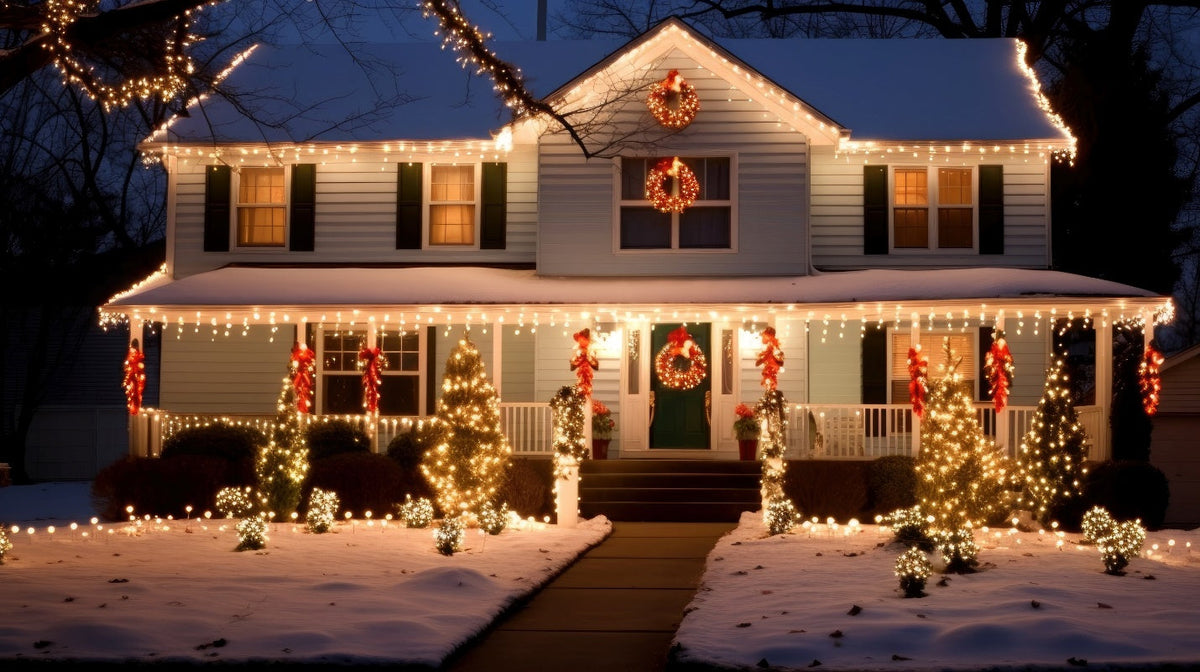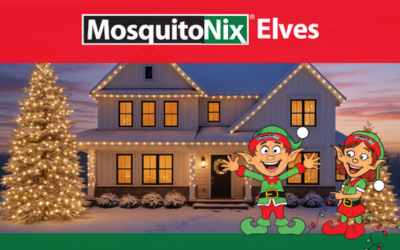
Winter Pests 101
MosquitoNix® Talks Rodents 101
You might think that since the weather is getting colder that you don’t have to worry about certain pests anymore. In some cases, that may be true. When venturing outside, you may not be swarmed by blood-thirsty flying pests, but don’t think these critters have disappeared completely.
Not all insects and animals hibernate during the winter months. Once the weather gets cold, some will seek out warmer habitats to hide out in. This often includes homes, which can be a source of warmth and food during the winter. In many ways, pests are like you: when it gets cold, they want to be somewhere comfortable where they have easy access to their favorite treats. If you’re like most people, you don’t want to share your space with these pests, so you might be looking for affordable pest control to keep them out of your home.
Thankfully, there are affordable pest control options, as well as pest control to ensure you and your family are safe when these animals invade your home. However, before looking for a “rat exterminator near me,” it’s helpful to know what pest might be taking over your space. Here are some of the most common winter pests and steps you can take to prevent an infestation.
Rodents
Rodents are well-known invaders year-round, but they are more likely to hide in your home in the winter. Getting an education on rodents 101 is beneficial, and we cover some of the basics below.
Mice
House mice are the most common rodent in the United States. With the word “house” right in their name, you know that’s where they are going to go when the weather gets unpleasant. These critters are going to find dark and secluded places to make themselves comfortable. They are going to nest in places like attics and basements.
Mice can spread diseases and damage property by chewing on drywall and electrical wiring. To keep them out of your house, make sure to seal any cracks and holes on the outside of your home. It only takes a dime-sized opening for house mice to get in.
Rats
Rats are another rodent you might find hiding in your home during the winter, which will have you scrambling to find a rat exterminator ASAP. Norway rats, also known as street or sewer rats, are found throughout the United States. Like mice, they enjoy nesting in basements. You might also find them in piles of debris.
Norway rats can cause a lot of damage to your home. They like to chew and burrow, which means they might gnaw through wiring, pipes and belongings or even cause damage to your foundation. They can also spread disease to you and your family.
Despite a rat’s size, they only need a half-inch opening to get into your home, so make sure doors, utility lines and vents are properly sealed and maintained. As with house mice, keep an eye out for droppings and gnaw marks that could indicate the presence of rats in your house.
Squirrels
Squirrels don't hibernate in the winter like you might think, but they are looking for warm places to spend the cold months. A squirrel’s favorite place to hang out include attics, and they can enter your home through chimneys, construction gaps and damaged shingles or by chewing through any weak points.
If they manage to get inside your house, they will make themselves at home by building a nest and storing their food. They will wander outside during warmer days, but if it gets too chilly, they’ll just stay inside and wreak havoc.
Similar to other rodents, squirrels can cause a lot of damage to your house. They will tear up insulation to use for their nests and chew through wiring, which can lead to fires. They can also pose a health hazard and spread disease. Make sure to inspect your home and look for any spots a squirrel could use to enter your home, then seal or fix those issues.
Squirrels are bigger and more noticeable than rats and mice. You won't have to look for chew marks and droppings to determine if you have a squirrel in your house because you are probably going to hear them thumping and scratching around in your attic space.
Insects and Bugs
While you might not see bugs as often in the wintertime, that doesn't mean they aren't around. Some of them are going to seek shelter in your house during the harsh winter months. Again, knowing what type of pest you are dealing with is beneficial when it comes to finding the best natural pest control method to use to get rid of them.
Cockroaches
German cockroaches are the most common type of cockroach worldwide. They will want to live in your home to be close to moisture and food. Plus, they can't survive in extremely cold temperatures, so they will be searching for warmth. They can fit in small spaces and will often make their way into homes via bags and boxes.
Because they like to be close to food and water, they are likely to be found in kitchen areas, such as sinks and cabinets, and around garbage containers. Having these insects in your home is a big cause for concern.
Cockroaches can contaminate food and surfaces and spread bacteria and allergens around your home. They also reproduce extremely fast, which means a rapid, out of control infestation can happen in no time. Getting in touch with a southern pest control professional is in your best interest.
To try to keep German cockroaches from being attracted to your home, make sure surfaces and floors are clean from crumbs and food debris and take out your trash on a regular basis.
Spiders
Brown recluse spiders can be dangerous to humans due to their venom. They are not something you want in your home.
If a brown recluse gets into your home, it is most likely going to make its web in a place like a box, closet, attic, basement or crawl space. They are interested in undisturbed places. It’s also a good idea to check any shoes that haven't been worn in a while in case any brown recluses are hiding in them.
While it can be easy for spiders to get into your house, there are some steps you can take to reduce the chances. One important thing you can do is keep shrubs and trees trimmed away from your house, especially if there are any branches hanging over your roof. Should you find that these creepy crawlies have already made their way inside, calling a western pest control professional is the best way to get them out.
Other Animals
In addition to the common pests we’ve talked about above, there are other, larger non-rodent animals that might invade your house in the winter.
Raccoons
Raccoons are attracted by food and garbage and might enter your house through a chimney or attic. These large wild animals can cause property damage and are common carriers of rabies.
To keep raccoons away, put trash cans in sealed areas like a shed or garage. Also, seal any points of entry they could use and put mesh over chimney tops.
Opossums
Opossums burrow under decks and porches and might also try to enter your home through a garage or attic. While they are usually docile animals, they can carry diseases that are transmittable to humans.
If you want to prevent opossums from entering your home, seek out and seal any points of entry they might find around garages, basements and attics.
Getting Rid of Winter Pests
If you find signs of winter pests in your home, or if you are looking for ways to prevent critters from getting into your home, contact MosquitoNix®. Our professionals offer services like Rodent Control and are happy to talk about pest control prices to help rid your home of invading pests. Call us anytime!
Leave a comment
Comments will be approved before showing up.





